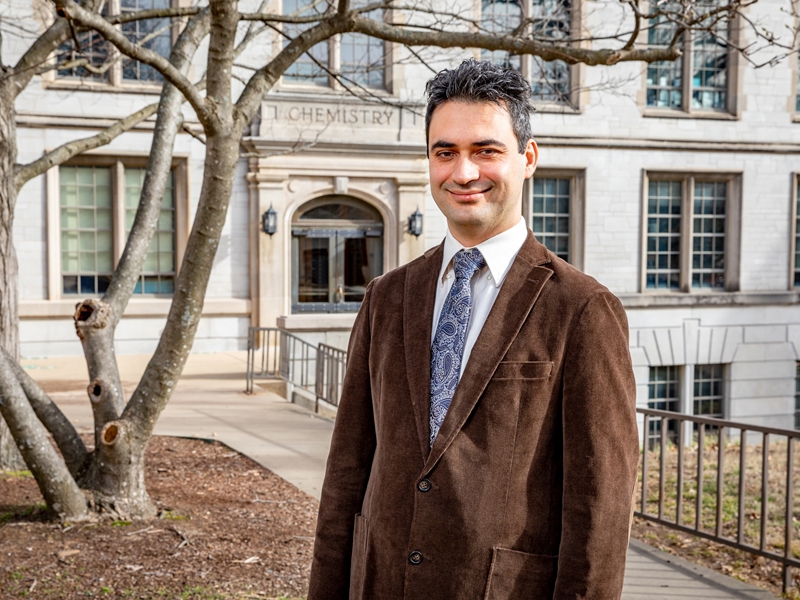Combing computational physics with experimental data, U of A researchers have developed computer models for determining a drug candidate’s ability to target and bind to proteins within cells.
If accurate, such an estimator could computationally demonstrate binding affinity and thus prevent experimental researchers from needing to investigate millions of chemical compounds. The work could substantially reduce the cost and time associated with developing new drugs.
“We developed a theoretical framework for estimating ligand-protein binding,” said Mahmoud Moradi, associate professor of chemistry and biochemistry in the Fulbright College of Arts and Sciences. “The proposed method assigns an effective energy to the ligand at every grid point in a coordinate system, which has its origin at the most likely location of the ligand when it is in its bound state.”
A ligand is a substance — an ion or molecule — such as a drug that binds to another molecule, such as a protein, to form a complex system that may cause or prevent a biological function.
Moradi’s research focuses on computational simulations of diseases, including coronavirus. For this project, he collaborated with Suresh Thallapuranam, professor of biochemistry and the Cooper Chair of Bioinformatics Research.
Moradi and Thallapuranam used biased simulations — as well as non-parametric re-weighting techniques to account for the bias — to create a binding estimator that was computationally efficient and accurate. They then used a mathematically robust technique called orientation quaternion formalism to further describe the ligand’s conformational changes as it bound to targeted proteins.
The researchers tested this approach by estimating the binding affinity between human fibroblast growth factor 1 — a specific signaling protein — and heparin hexasaccharide 5, a popular medication.
The project was conceived because Moradi and Thallapuranam were studying human fibroblast growth factor 1 protein and its mutants in the absence and presence of heparin. They found strong qualitative agreement between simulations and experimental results.
“When it came to binding affinity, we knew that the typical methods we had at our disposal would not work for such a difficult problem,” Moradi said. “This is why we decided to develop a new method. We had a joyous moment when the experimental and computational data were compared with each other, and the two numbers matched almost perfectly.”
The researchers’ work was published in Nature Computational Science.
Moradi previously received attention for developing computational simulations of the behavior of SARS-CoV-2 spike proteins prior to fusion with human cell receptors. SARS-CoV-2 is the virus that causes COVID-19.
About the University of Arkansas: As Arkansas' flagship institution, the U of A provides an internationally competitive education in more than 200 academic programs. Founded in 1871, the U of A contributes more than $2.2 billion to Arkansas’ economy through the teaching of new knowledge and skills, entrepreneurship and job development, discovery through research and creative activity while also providing training for professional disciplines. The Carnegie Foundation classifies the U of A among the few U.S. colleges and universities with the highest level of research activity. U.S. News & World Report ranks the U of A among the top public universities in the nation. See how the U of A works to build a better world at Arkansas Research News.
Topics
Contacts
Mahmoud Moradi, associate professor of chemistry and biochemistry
Fulbright College of Arts and Sciences
479-575-6459,
Matt McGowan, science and research communications officer
University Relations
479-575-4246,
